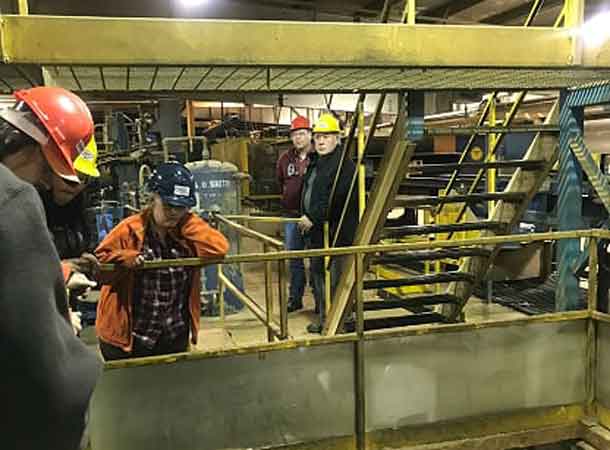Eight Programs Aim to Prepare 1,700 Indigenous Jobseekers for Rewarding Careers in Critical Sectors
Thunder Bay, Ontario – Business – The Ontario government has announced a significant investment of $7.3 million in eight groundbreaking training initiatives, aiming to bolster the Indigenous workforce across Northern Ontario. These projects, funded through Ontario’s Skills Development Fund (SDF) Training Stream, will provide essential skills and training to 1,700 workers, bridging the gap in critical sectors such as mining, logging, construction, healthcare, and tourism. The programs also address the pressing issue of the region’s 17,000 vacant jobs, offering tailored supports including mentorships, paid job placements, mental health resources, transportation, and accommodation.
David Piccini, Minister of Labour, Immigration, Training, and Skills Development, expressed his enthusiasm about the initiative, stating, “Across Northern Ontario, thousands of great jobs are waiting to be filled. Our government is proud to invest in groundbreaking training programs that will connect more Indigenous people to the training they need to find life-changing jobs and build stronger communities for everyone.”
Greg Rickford, Minister of Indigenous Affairs and Minister of Northern Development, emphasized the significance of reducing barriers for workplace entry. “By supporting innovative skills training projects across Northern Ontario, we are opening the door for Indigenous workers and job seekers to embark on meaningful, lifelong careers within in-demand sectors across a number of industries,” said Rickford.
One of the key projects is led by the Ironworkers Local 759 in Thunder Bay. This initiative will help 100 workers and jobseekers in the region upgrade their skills to find rewarding careers in Northern Ontario’s booming construction industry. The one-year program will be free to participants and aims to address the critical shortage of ironworkers and welders. BJ Sault, President of Ironworkers Local 759, expressed gratitude for the government’s support, stating, “With the generous support of the provincial government, we’re not only fostering a skilled workforce but also creating opportunities that will leave a lasting impact, honouring the diverse traditions that have shaped the Ironworkers Local 759.”
Additionally, various organizations across multiple industries in Northern Ontario will lead seven more projects, offering diverse opportunities for Indigenous jobseekers. These initiatives include programs such as Mining Essentials and Heavy Duty Equipment Technician training, provided by Anishinabek Employment & Training Services (AETS), as well as electrical apprenticeships offered by the International Brotherhood of Electrical Workers, L.U. 1687.
The Ontario government has invested over $860 million in the Skills Development Fund Training Stream, assisting half a million people in advancing their careers. The Skills Development Fund Training Stream applications are open until November 17, 2023. Organizations with innovative project ideas to address challenges in hiring, training, or retaining workers can apply through Transfer Payment Ontario.
Kevin Holland, Member of Provincial Parliament for Thunder Bay – Atikokan and Parliamentary Assistant to Minister Greg Rickford, highlighted the broader impact of these investments. “Investments into Indigenous communities across the North such as these will not only support residents but support our government’s goal of expanding the number of skilled trades workers in our region. This support will strengthen Indigenous communities while spurring economic growth throughout Northern Ontario as we pursue housing targets for the benefit of all Ontarians,” said Holland.
These initiatives underscore Ontario’s commitment to empowering Indigenous communities, creating sustainable jobs, and fostering economic growth in the region. The programs not only bridge the gap in critical sectors but also pave the way for a brighter and more prosperous future for Northern Ontario’s Indigenous workforce.







